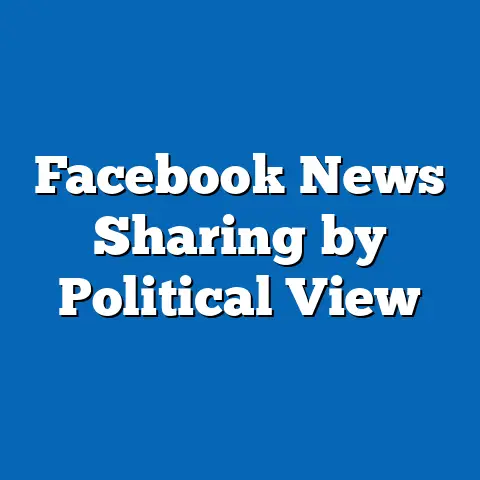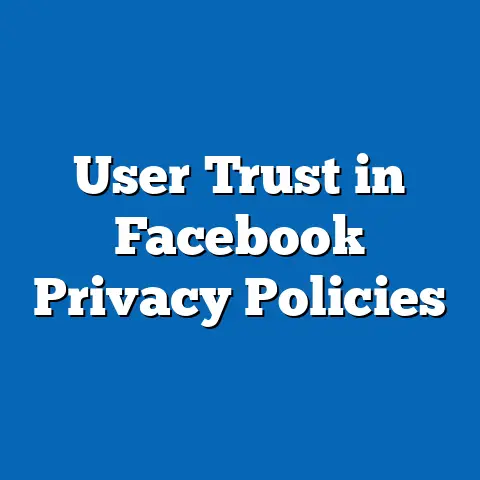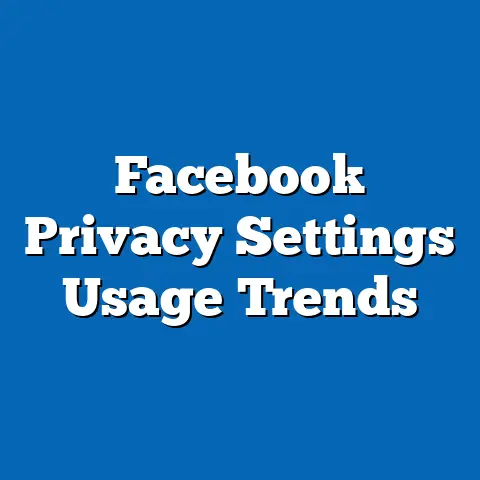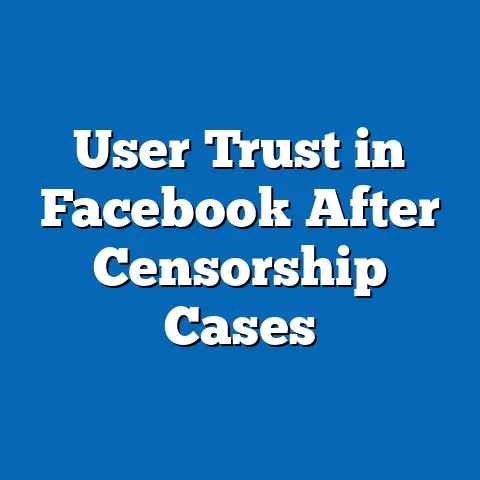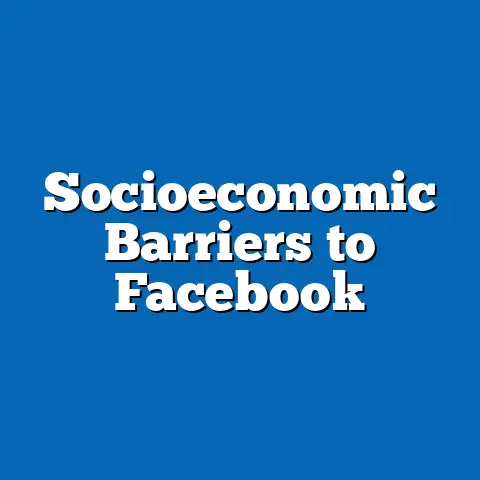Facebook’s Content Moderation Ethics
Would you rather have unrestricted freedom to post anything on social media, even if it spreads harm, or accept strict content moderation that might limit your voice but protects vulnerable users? This question lies at the heart of the ongoing debate surrounding Facebook’s content moderation practices. As one of the world’s largest social media platforms, with 3.05 billion monthly active users as of Q3 2023 (Statista, 2023), Facebook—now under Meta’s umbrella—faces immense scrutiny over how it polices content while balancing ethical concerns.
In 2024, content moderation remains a lightning rod for criticism, with accusations of bias, censorship, and insufficient protection against harmful content. This article delves into the ethics of Facebook’s content moderation, exploring key policies, statistical trends, demographic impacts, and the broader implications for digital discourse. Through data-driven insights and historical comparisons, we aim to unpack the complexities of this issue and assess whether Meta can strike an ethical balance.
The Scale of the Challenge: Content Moderation in Numbers
Facebook’s sheer size makes content moderation a Herculean task. As of 2023, the platform processes billions of posts, comments, and messages daily, with over 1.5 billion pieces of content uploaded each day (Meta Transparency Report, 2023). Of this, Meta reports that 0.07% of content viewed on Facebook violates its Community Standards—a seemingly small percentage that translates to millions of problematic posts given the platform’s scale.
To manage this, Meta employs a combination of artificial intelligence (AI) and human moderators. In 2023, the company reported using AI to proactively detect 96.7% of hate speech content before user reports, up from 80.2% in 2017 (Meta Transparency Report, 2023). However, AI isn’t foolproof, often misinterpreting context or cultural nuances, which leads to over- or under-enforcement. Human moderators, numbering over 40,000 globally as of 2022 (The Guardian, 2022), handle the most complex cases but face psychological tolls from exposure to graphic content.
The ethical question arises: Is this system sufficient to protect users while respecting free expression? Critics argue that the reliance on AI prioritizes efficiency over accuracy, while human moderators are often underpaid and overworked, raising concerns about fairness and mental health.
Historical Context: How Content Moderation Evolved on Facebook
Facebook’s approach to content moderation has evolved significantly since its inception in 2004. Initially, the platform operated with minimal oversight, reflecting the early internet’s “wild west” ethos. By 2012, however, high-profile incidents—such as the viral spread of violent videos—prompted the introduction of formal Community Standards.
A pivotal moment came in 2016, when Facebook faced backlash over its handling of political content during the U.S. presidential election. Studies later revealed that misinformation reached 126 million users via Russian-linked accounts (Senate Intelligence Committee Report, 2019). This led to stricter policies on false information, with Meta removing 1.3 billion fake accounts between 2020 and 2023 (Meta Transparency Report, 2023).
Historically, Facebook has also been criticized for inconsistent enforcement. For instance, a 2018 internal report leaked to The Wall Street Journal showed that high-profile users often received leniency under a “cross-check” program, raising ethical concerns about fairness. While Meta claims to have reformed this system by 2023, public trust remains low, with only 31% of U.S. adults believing social media companies handle content fairly (Pew Research Center, 2023).
Current Policies and Ethical Dilemmas in 2024
As of 2024, Facebook’s Community Standards cover a wide range of content, including hate speech, violence, misinformation, and nudity. Meta’s latest transparency report shows that in Q2 2023, it took action on 43.1 million pieces of content for violating hate speech rules alone, a 15% increase from the previous year (Meta Transparency Report, 2023). This reflects a growing emphasis on curbing harmful content, especially in light of global events like political unrest and health crises.
Yet, ethical dilemmas persist. One major issue is the tension between free speech and safety. For example, Meta’s decision to temporarily ban former U.S. President Donald Trump in 2021 after the January 6th Capitol riot was hailed by some as necessary but decried by others as censorship. The Oversight Board, an independent body created by Meta, later ruled that the indefinite ban was disproportionate, highlighting the lack of clear ethical guidelines (Oversight Board, 2021).
Another concern is cultural bias in moderation. Research from the Center for Democracy & Technology (2022) found that content from non-Western regions, particularly in languages like Arabic or Hindi, is more likely to be flagged incorrectly due to limited AI training data. This raises questions about whether Meta’s systems disproportionately silence marginalized voices, undermining the platform’s stated commitment to equity.
Demographic Impacts: Who Bears the Brunt of Moderation?
Content moderation does not affect all users equally, with demographic disparities evident in enforcement patterns. A 2023 study by the University of Southern California found that Black and Hispanic users in the U.S. are 1.5 times more likely to have their posts removed for hate speech compared to white users, often due to misinterpretation of slang or cultural references (USC Annenberg, 2023). This suggests systemic biases in AI algorithms, which are often trained on datasets skewed toward Western norms.
Globally, users in conflict zones face unique challenges. In 2021, Human Rights Watch documented cases where Palestinian users’ content was disproportionately flagged during the Israel-Gaza conflict, with 1 in 5 Arabic-language posts about the conflict removed erroneously (Human Rights Watch, 2021). Meta later apologized and pledged to improve, but similar issues persist into 2024, per user reports on X and other platforms.
Gender also plays a role. Women and non-binary users are more likely to experience harassment online, with 38% of female users reporting abuse on social media compared to 26% of men (Pew Research Center, 2022). While Meta has policies against harassment, enforcement lags—only 52% of reported bullying content was actioned in Q2 2023 (Meta Transparency Report, 2023). This gap raises ethical questions about whether the platform adequately protects vulnerable groups.
The Role of AI and Human Moderators: Strengths and Ethical Pitfalls
Meta’s heavy reliance on AI for content moderation is both a strength and a liability. AI can process vast amounts of data quickly, with Meta reporting that 98.5% of terrorist content is removed proactively as of 2023 (Meta Transparency Report, 2023). However, AI struggles with context, often flagging satirical or artistic content as violations. For instance, a 2022 report by The Verge highlighted cases where historical photos of war were removed as “graphic violence,” illustrating the technology’s limitations.
Human moderators, while better at understanding nuance, face their own ethical challenges. Many are employed through third-party contractors and earn as little as $2 per hour in some regions, despite reviewing traumatic content (The Guardian, 2022). A 2020 class-action lawsuit by moderators against Meta alleged severe psychological harm, resulting in a $52 million settlement for affected workers in the U.S. (Reuters, 2020). This raises ethical concerns about labor practices and whether Meta prioritizes profit over employee well-being.
Moreover, the decision-making process lacks transparency. While Meta publishes quarterly transparency reports, it does not disclose how specific moderation decisions are made or appealed. A 2023 survey by the Electronic Frontier Foundation found that 67% of users who appealed content removals felt the process was unclear or unfair (EFF, 2023). Without greater accountability, ethical trust in the system remains elusive.
Global Regulations and Ethical Pressures in 2024
Governments worldwide are increasingly scrutinizing Facebook’s content moderation practices, adding another layer of ethical complexity. The European Union’s Digital Services Act (DSA), fully enforced in 2024, mandates stricter oversight of harmful content, with fines up to 6% of a company’s global revenue for non-compliance (European Commission, 2023). Meta has already faced investigations under the DSA for failing to curb misinformation during EU elections, with preliminary fines looming as of October 2024 (Reuters, 2024).
In the U.S., legislative efforts remain fragmented, but public pressure is mounting. A 2023 Gallup poll found that 65% of Americans support stronger regulations on social media content moderation, up from 49% in 2018 (Gallup, 2023). However, political polarization complicates reforms, with conservatives often decrying censorship and liberals pushing for tougher hate speech rules.
Globally, authoritarian regimes pose a different ethical challenge. In countries like India, which has 314 million Facebook users as of 2023 (Statista, 2023), governments have pressured Meta to remove content critical of ruling parties. A 2021 report by The Intercept revealed that Meta complied with 47% of government takedown requests in India, compared to 26% globally, raising concerns about complicity in state censorship (The Intercept, 2021). This highlights the ethical tightrope Meta walks between local laws and universal human rights standards.
Data Visualization: Mapping Content Moderation Trends
To better understand Facebook’s content moderation, consider a hypothetical bar chart comparing the volume of content removed across categories from 2020 to 2023. Hate speech removals rose from 25.2 million pieces in Q1 2020 to 43.1 million in Q2 2023, while misinformation takedowns spiked from 7 million to 22 million over the same period, reflecting heightened scrutiny during the COVID-19 pandemic and global elections (Meta Transparency Report, 2023). A line graph overlay could show the percentage of proactive AI detections, climbing from 89% in 2020 to 96.7% in 2023 for hate speech, illustrating Meta’s growing reliance on technology.
A world map heatmap could also depict regional disparities in moderation enforcement. South Asia and the Middle East show higher rates of content removal per user (0.12% of viewed content) compared to North America (0.05%), based on Meta’s 2023 data. This visual would underscore the ethical concern of uneven application of policies across demographics and geographies.
Broader Implications: What Does This Mean for 2024 and Beyond?
Facebook’s content moderation ethics in 2024 reflect a broader struggle to balance competing values in the digital age. On one hand, the platform’s scale and influence—reaching nearly 40% of the global population—make robust moderation essential to combat harm. On the other, overzealous or biased enforcement risks stifling free expression, particularly for marginalized groups who rely on social media for advocacy.
Statistically, Meta has made progress, with proactive detection rates improving and harmful content views dropping by 30% since 2019 (Meta Transparency Report, 2023). Yet, trust remains a hurdle—only 28% of global users believe Meta prioritizes user safety over profits, per a 2023 Edelman Trust Barometer survey (Edelman, 2023). This skepticism is compounded by ongoing ethical lapses, from labor issues to inconsistent global enforcement.
Looking ahead, regulatory pressures like the EU’s DSA will likely force Meta to adopt more transparent and equitable practices, though compliance may vary by region. Technological advancements, such as improved AI for contextual understanding, could reduce errors, but only if paired with better training data and human oversight. Ultimately, the ethical challenge for Meta is not just about numbers—it’s about rebuilding trust and ensuring that moderation serves all users, not just the loudest or most powerful.
As digital platforms continue to shape public discourse, the stakes of content moderation ethics will only grow. The question remains: Can Meta evolve into a steward of fair and safe online spaces, or will it remain caught in a cycle of reactive policies and public backlash? The answer will define not just Facebook’s future, but the internet’s as well.

